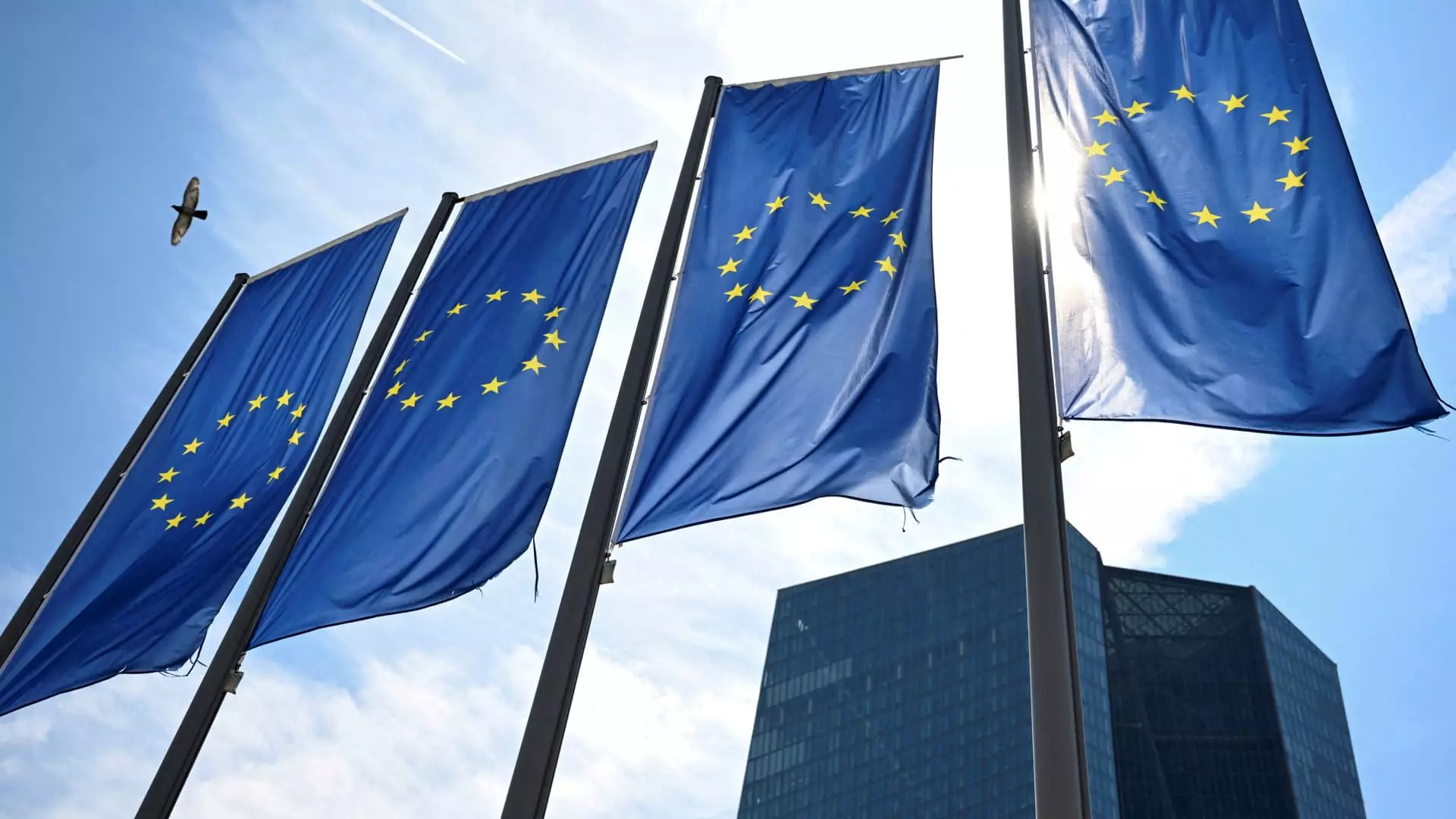In light of growing geopolitical challenges, European leaders convened recently to deliberate strategies for financing substantial investments in defense. However, looming over this crucial dialogue were the recent actions taken by U.S. President Donald Trump, who has made headlines for implementing tariffs on goods imported from Mexico, Canada, and China. These tariffs are set to take effect imminently, raising concerns among EU officials regarding potential future targeting of European goods.
The current global trade landscape is fraught with uncertainty, in part due to Trump’s unpredictable trade policies. His assertions that Europe has manipulated trade practices to its advantage are potent rhetoric that galvanizes his base but complicates transatlantic relations. In Trump’s estimation, a significant trade imbalance exists, with the U.S. facing a staggering $300 billion deficit, a figure he did not hesitate to amplify during media interactions preceding the leaders’ summit.
The United States represents the largest export market for the European Union, a relationship that is economically reciprocal but characterized by distinct asymmetries. The EU primarily exports automotive and pharmaceutical products to the U.S., whereas it supplements its energy requirements by importing oil and natural gas from American sources. Such a juxtaposition underscores the delicate balance of reliance and power within the transatlantic trade framework.
Significantly, EU officials are aware that increasing energy purchases from the U.S. could potentially alleviate trade frictions. Before the meeting, an anonymous official hinted at the pressing need for the EU to strategically bolster its energy imports, particularly liquefied natural gas (LNG), as a means of negotiation with the U.S. This rationale hinges on the understanding that strengthening economic ties could provide a buffer against the imposition of further tariffs. However, the blanket nature of Trump’s tariffs leaves EU leaders speculating about the unpredictability of future trade engagements.
As the leaders prepared for critical discussions, a consensus among EU member states emerged regarding the necessity of a unified stance in response to Trump’s tariffs. While the immediate focus of the meeting may not center explicitly on tariff discussions, the implications of Trump’s recent decisions are likely to be a recurrent theme. Observers predict that some leaders will mention the tariff situation, emphasizing the urgency of a coordinated response.
The European Union’s official position, articulated by a spokesperson for the European Commission, demonstrates a steadfast commitment to free trade principles. The EU maintains that reduced tariffs facilitate growth and contribute to economic stability within a rules-based trading system. This philosophy is crucial, as the EU braces for possible retaliatory measures should the U.S. target European goods next. EU officials have signaled a readiness to respond “firmly” against any unjust trade practices, illustrating an unwavering commitment to protect its markets.
Simultaneously, there is an acknowledgment within EU diplomatic circles that a confrontation over trade issues is on the horizon. Reflecting this sentiment, a senior diplomat suggested that although negotiation channels remain open, particularly by increasing energy imports, avoiding escalation is becoming increasingly challenging.
The specter of tariffs not only affects direct trade relations but also reverberates through the broader economic ecosystem. The potential consequences of Trump’s economic strategies could be far-reaching, impacting supply chains, market stability, and diplomatic engagements on various fronts. The EU’s attempt to insulate itself from these trade disruptions through enhanced energy purchases could ultimately shift the dynamics of transatlantic commerce.
As the meeting unfolds, the focus will likely pivot toward future strategic investments while also keeping a keen eye on the trade rivalry with the U.S. The need for fortified defense capabilities looms large, emphasizing the dual imperative of enhancing military readiness while safeguarding economic interests against erratic trade policies.
The interplay between defense investment discussions and the looming threat of U.S. tariffs presents a complex challenge for European leaders. As they navigate this precarious landscape, maintaining a robust economic position while fostering cooperation will be paramount for the EU’s future sustainability and strategic autonomy in an ever-evolving global arena.



Leave a Reply